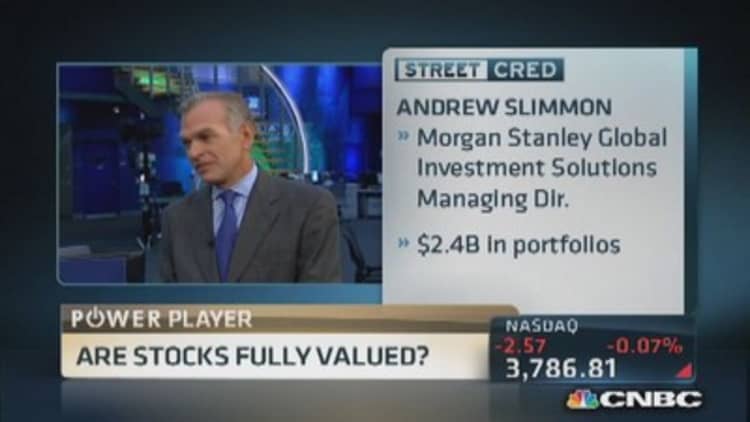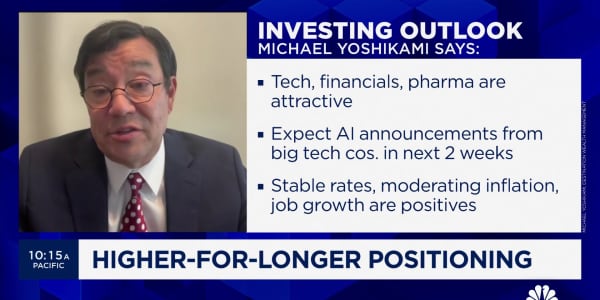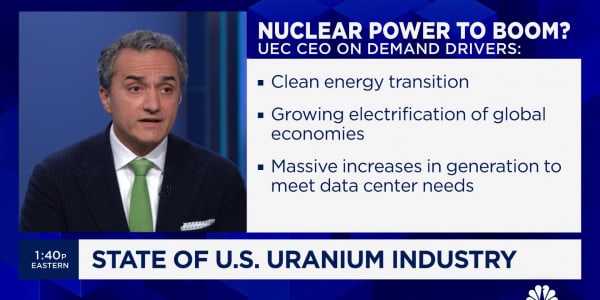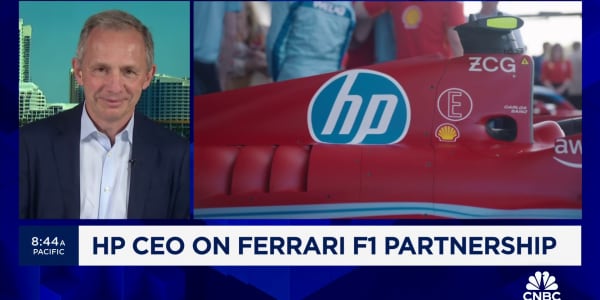You know it's a rough market when even Warren Buffett can't find a bargain.
History's most famous value investor told CNBC a few days ago that stocks are now "fairly priced" and that a good buy is hard to find.
Seemingly benign, the statement comes at what could be a crucial time for the market, when investors are looking for a clear signal amid a sea of conflicting ones.
In addition to Buffett's statement, last week's trading had two fairly watershed moments: The Federal Reserve fooled most of the investing community when it decided not to pare back its $85 billion a month bond-buying program, and traders poured the most money ever into the equity market for a single week.

(Read more: Bulls gone wild: Money flows hit a new record)
The results, though, were just as muddied as the Fed's message.
Stocks shot up following Wednesday's Open Market Committee meeting—and on the backs of the $26 billion in cash that poured into mostly exchange-traded funds prior to the decision—then proceeded to turn tail in the other direction, giving up all their post-Fed gains.
The developments raised an inevitable question of whether the market, after thriving on a $3.7 trillion Fed balance sheet of cheap money, had finally hit a wall and a bubble of sorts had popped.
"Bubbling his way out of trouble," was the way Michael Hartnett, the chief market strategist at Bank of America Merrill Lynch, termed Fed Chairman Ben Bernanke's approach to the market.
Hartnett's analysis was not so much that the bubble had been breached, but rather a suggestion that perhaps all the Fed accommodation had caused a bubble with which Bernanke was happily compliant.
(Read more: BofA got Fed right, here's what they say is next)
To add to Buffett's observation about a market that no longer was cheap, activist investor Carl Icahn chimed in with similar comments, saying there really weren't a lot of bargains left but that he was looking for one in Apple.
At a news conference after the decision, Bernanke was unapologetic for the Fed's decision making and the tumult it caused.
Some in the market, though, weren't pleased.
"Fed officials have never been able to agree among themselves what exactly would constitute the 'substantial' improvement in the labor market outlook that would persuade them to halt the monthly asset purchases," Paul Ashworth, chief U.S. economist at Capital Economics, said in an analysis for clients. "As a result, they have done a very poor job of communicating to the markets how improvements in the labor market should be gauged."
The problems went deeper, though, than the Fed's simple nervousness over the recovery's pace.
(Read more: Lone dissenter says Bernanke's Fed confused the market)
Markets have counted on Fed chairmen to provide clear guidance about future policy—even through the nuanced code that Alan Greenspan had once provided—and Bernanke had violated that gentleman's agreement.
What could be worrying the chairman so much that he would risk a financial asset bubble as well as the alienation of his market constituency?
Joe LaVorgna, the chief U.S. economist at Deutsche Bank, vented his frustration with the Fed in a note:
"The irony to all of this is that the backup in interest rates was due mainly to the chairman's May 22 comments before the Joint Economic Committee when during the Q&A session he suggested that the Fed could taper its asset purchases sometime this year. The chairman did nothing to dispel this notion at the June 19 post-FOMC press conference, his July 10 speech at a NBER Conference or during his mid-year "Humphrey Hawkins" testimony (July 17).
By nature LaVorgna is affably bullish, but his frustration with the Fed has grown in recent months over concern that the central bank continues to use crisis policies in the absence of a crisis—a policy that carries risks that increase the longer it persists.
LaVorgna said he believes the market has been given too free a hand to dictate Fed policy:
We are worried that when the time comes to taper, and someday tighten, the Fed will not have the courage to follow-through on its actions because market expectations will likely be well ahead of where the Fed is. In turn, policymakers will shy away from taking sufficiently aggressive action.
Critics worry that such loose Fed policy always feeds into bubbles, and that the stock market surge of 150 percent off the March 2009 lows is just the latest case of a central-bank induced catastrophe waiting to happen. (David Stockman, the maverick director of the Reagan-era Office of Management and Budget, makes an 850-page case in his recent book The Great Deformation.)
Investor Doug Kass at Seabreeze Partners Management believes the Fed has dug itself a hole from which there may be no escape.
Investors hoping that the market rally was pinned on growth and not trillions in quantitative easing may be the ones who pay the price.
"There is no way out for the Fed once it started the process of printing," Kass told clients. "Getting in was easy. Getting out—not so much. The Fed is trapped and can't end tapering or else the bond and stock markets will blow up. The longer this continues the bigger the inevitable burst."
_ By CNBC's Jeff Cox. Follow him @JeffCoxCNBCcom on Twitter.







